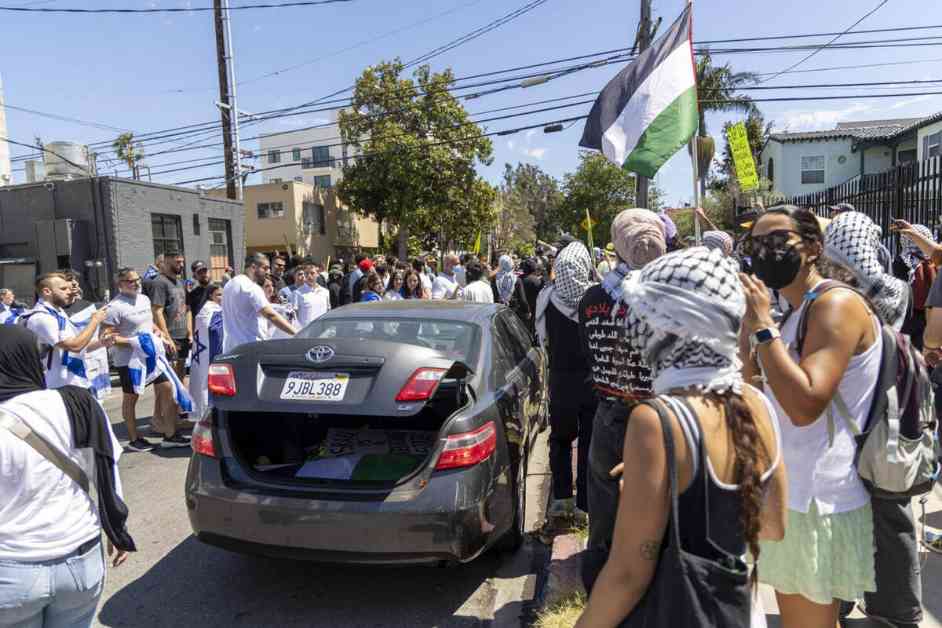A local Jewish man from Los Angeles, Ronen Helmann, has taken legal action against two groups, Code Pink and the Palestinian Youth Movement, following a protest outside a synagogue that turned violent. The lawsuit, filed by Helmann’s attorney Mark Javich, claims that the groups targeted the Adas Torah synagogue in the Pico-Robertson neighborhood with the intention of causing chaos and blocking access to the synagogue due to their opposition to Zionism and the Jewish connection to Israel.
The complaint alleges that the demonstrators violated Helmann’s 1st Amendment right to worship and engaged in threatening and antisemitic behavior by calling him names like Nazi, baby murderer, and colonizer. Furthermore, the lawsuit states that the protesters made threatening remarks such as “Leave the neighborhood, we are coming” and “Slaughter the Jews.” It also mentions that masked demonstrators were seen taking photos of Jewish homes and cars.
Code Pink and the Palestinian Youth Movement have not yet responded to the allegations made in the lawsuit, but they have previously stated that the protest was in response to a real estate event at the synagogue, not motivated by antisemitism.
The demonstration turned violent when clashes erupted between supporters of Israel and supporters of Palestinians. The Los Angeles Police Department had to intervene to disperse the crowd, with one pro-Israel counterprotester being detained for carrying a sharp pole.
Following the incident, U.S. Attorney General Merrick Garland called for a federal inquiry into the demonstration. Helmann is seeking compensatory and punitive damages, as well as attorney fees, in response to the violation of his rights and the disruption caused by the protest.
Attorney Mark Javich emphasized the importance of holding the groups accountable for their actions and ensuring that laws protecting access to synagogues are upheld. He stated that targeting a synagogue based on its connection to Israel is unacceptable and must be addressed appropriately.
The lawsuit highlights the need to address issues related to the freedom to worship without fear of intimidation or violence. It serves as a reminder of the importance of respecting all individuals’ rights to practice their faith without facing discrimination or harassment based on their beliefs.



